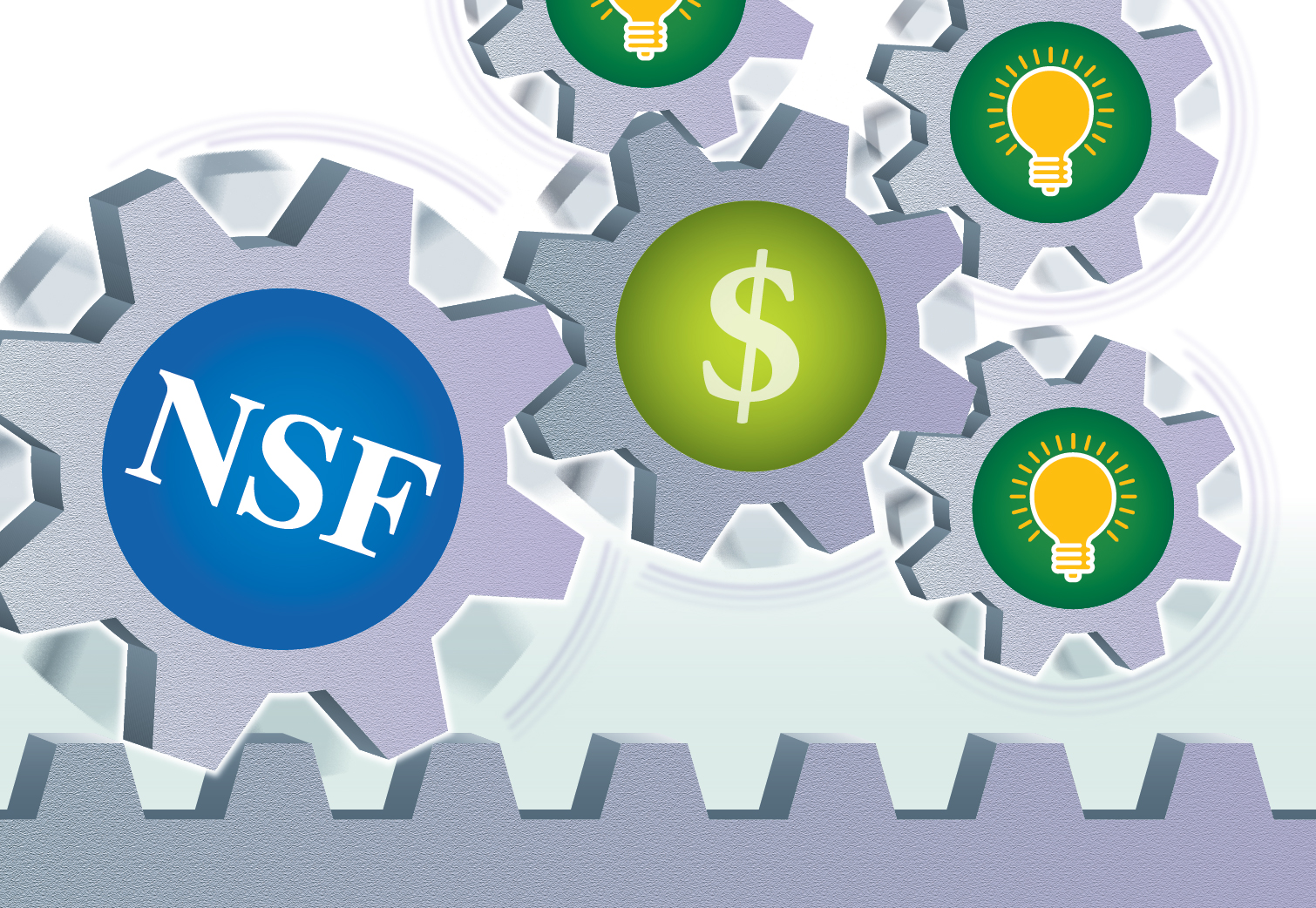
Illustration by Marcia Staimer.
Say you want to open a new restaurant. You might think about leasing space and buying equipment, ingredients and, maybe, a really big sign.
If you followed Lean Startup methodology, your focus would be different, said David J. Miller, executive director of the Center for Innovation and Entrepreneurship (CIE) in George Mason University’s School of Business.
“A Lean Startup approach would say, hey, why don’t you start by putting up a catering ad on Craigslist or making whatever your food is at a farmer’s market at a table, where you spend $500 instead of signing on for a full restaurant?” Miller said. “What you are figuring out is what people will really pay for.”
Multiple university units have taught that method for at least five years, Miller said, and the National Science Foundation (NSF) is helping expand that effort with a five-year, $500,00 grant that provides $100,000 a year.
The grant will allow the university to provide funds to innovation teams to research their technology, business models and concepts around, as the NSF website says, “products, processes and services that benefit society.”
“So it’s early stage stuff,” said Miller, who is co-primary investigator with Ali Andalibi, associate dean for research in the College of Science, and Bob Smith, director of the Mason Small Business Development Center. “And it’s very simple. It’s, basically, listen to your customer, dummy.”
Well, it is a bit more complicated than that.
In addition to more formally exposing participants to Lean Startup methodology, the grant puts George Mason into the nation’s innovation ecosystem and opens opportunities for students and faculty to attend national NSF programs.
The grant also builds on a campus-wide environment CIE has built through entities such as the Mason Innovation Lab, the Mason Enterprise Center, the Virginia Serious Games Institute, MIX spaces, and expansion of the Dean’s Business Competition, all of which reinforces the idea that entrepreneurship is synonymous with education.
In fact, Miller said, “Our university-wide ecosystem is why we won the [NSF] award.”
And with an NSF seal of approval, Mason’s business partners “can feel comfortable that we do know what we’re doing in this field. And it’s a very important field, not only for our students, but our faculty and graduate students. You don’t want to waste these talents,” Andalibi said.
On a more granular level, money provided to teams could assist in traveling to trade shows tied to their business ideas or to different towns in the region to do customer interviews.
“It’s really meant to be an educational component,” Andalibi said. “It’s education about the commercial viability of their proposed product.”
